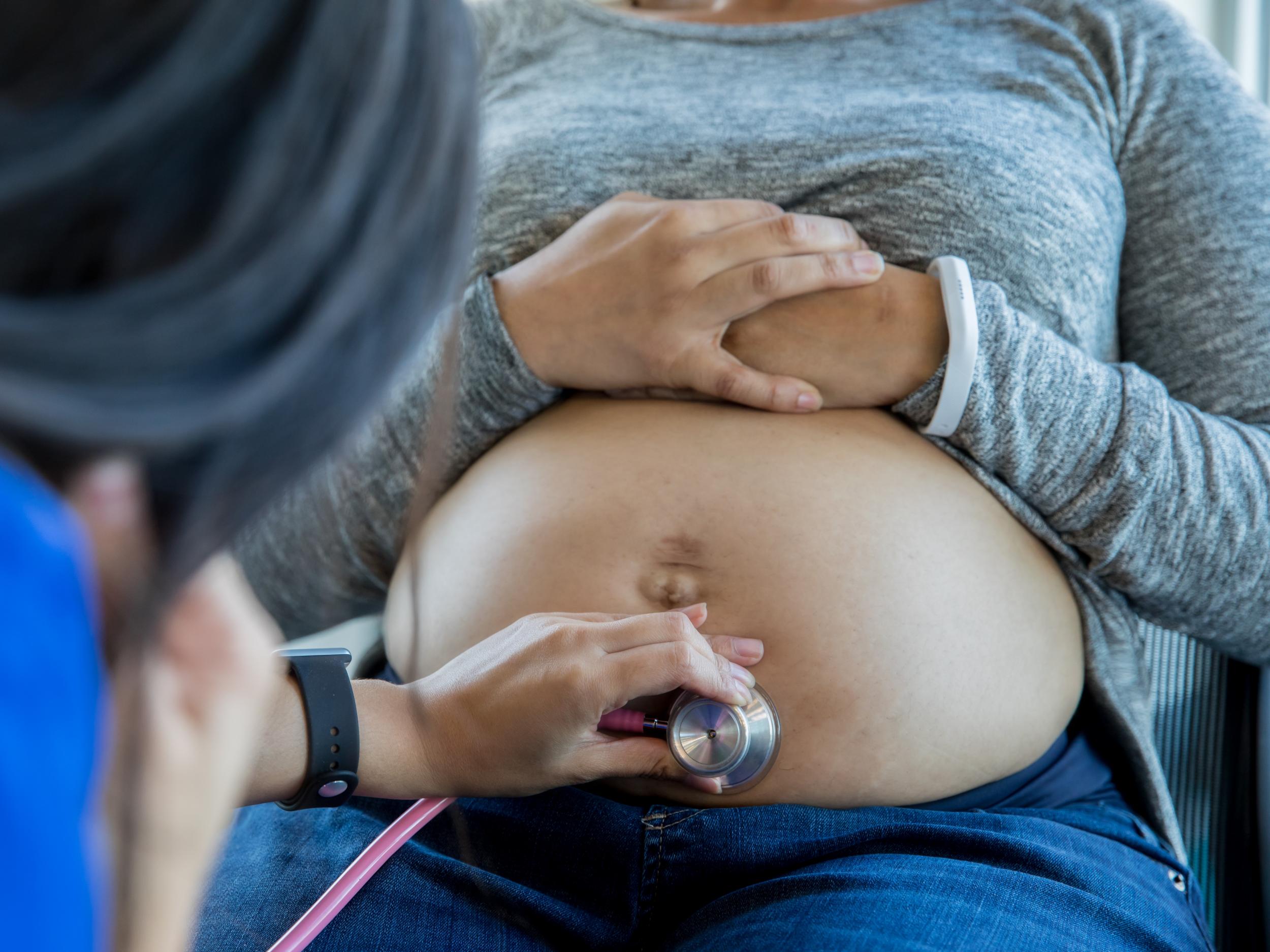I’m a pregnant midwife – here’s what I now realise I was getting wrong
When women at work would tell me about their morning sickness, I had no idea how bad it could be, said Lizzie Romain. But when I became pregnant myself, I realised that there are some things about having a baby that you can’t understand until you’ve been through it yourself...


Do you have children?” The woman I’m looking after in early labour looks deep into my eyes, searching for solidarity.
“I don’t,” I admit. “Well, not yet anyway. One day I want them,” I offer, hoping that brings a note of solace – but the conversation always comes to an abrupt close at this point.
For 13 years, I’ve been a midwife. An “expert” on all things pregnancy and birth. I’ve guided countless families through labour, assisted in numerous caesarean sections, taught parent education classes, and conducted hospital tours – yet I’ve never experienced a contraction.
I worked in the antenatal clinic, caring for women through their pregnancies from 10 weeks antenatally to six weeks postpartum. Nervous but excited parents-to-be would arrive at their first booking appointment, many suffering the worst period of their morning sickness. Trying to make them feel better, I’d wave it off with a well-meaning, “Don’t worry, you’ll feel much better when I next see you at 16 weeks!”
If I could chat to past patients of mine now, I’d apologise for my flippancy. I am now pregnant myself and have experienced 24/7 nausea for months on end, only getting respite when sleeping. Knowing there could be an end in four weeks isn’t particularly comforting or helpful – and actually, as it has for me, it could end up persisting all day, and for the whole of the pregnancy. Who the heck came up with the misleading term “morning” sickness anyway?!
I always thought being pregnant myself would be an eye-opener, but I never expected to suddenly be asking Dr Google such things as “Can I squish the baby if I bend over?”
When it comes to other pregnancy side effects, well, I never expected my breasts to suddenly (and painfully) balloon from a 34D to a 36FF-G before I hit week 20! What’s that all about?! The baby doesn’t need milk for another 20 weeks!
Off I begrudgingly trundled to a lingerie shop for a fitting – and forked out an irksome £72 on two new bras with not just three, but four clips at the back. You’d think at that price they’d at least be nice, but they looked like something my grandma owned. Turns out most high street stores appear to stop doing cute designs over a DD – after that point, they’re all business.
Experiencing fetal movements is wonderful, they said. Some women even report missing them after the baby is born. I never expected to wince and squirm as much as I have while feeling another human skeleton wriggling around inside my abdomen, trying to get comfortable in what must be a very dark, topsy-turvy, and increasingly confined space. My body now feels like a washing machine on a constant cycle.
For years, I’ve not understood the aches and moans of pregnant mothers, oft wondering why they’re so unhappy when they’re performing miracles inside their bodies. To their list of ailments, I’d usually responded with, “That’s normal for pregnancy, I’m afraid,” or – even less helpfully – “It’ll be worth it though!”
Having children may well be worth it, but that doesn’t make conditions such as ptyalism any less horrible and debilitating. If you aren’t familiar (lucky you), that’s the one where your mouth decides to randomly produce excess saliva, which you then have to spit out into a container for months on end.
It’s difficult being a midwife when you’re broody, though, especially if you’re going through any kind of relationship instability. It’s hard not to feel jealous of the happy couples in front of you, expanding from a companionship of two to a family of three, while fretting about whether your own reproductive health remains good to go for “when the time is right”.
Whoever said your thirties were the best years of your life is wrong – not least for women who are itching to have children but haven’t yet sealed the deal with their significant other. Constantly having to ask yourself: do I need to freeze my eggs to bide more time? Might I need IVF? Will I even be able to conceive at all?
Men don’t seem to have that same sense of urgency that wannabe mothers and their biological clocks do. After all, as long as they don’t have their own fertility issues to deal with, they can technically continue to have children into their nineties. Mine felt a bit duped after I fell pregnant during our first month of trying, after having told him that it could take a year or longer. Meanwhile, I breathed a silent sigh of relief.
I really feel for those who spend years trying, having to endure battles of will for countless months on end, followed by the painstaking “two-week wait”, only to be met with a negative pregnancy test or the arrival of their period. It must be psychologically tortuous.
It has meant that even though I haven’t particularly enjoyed the “blossoming” of my body and intimate befriending of our bathroom toilet, I can’t help but remember all the women who would give anything to be in my position right now. To be carrying a healthy baby.
It’s meant that I’ve tried not to outwardly complain too much about my various ailments in polite conversation – you never know what familial struggles the person you’re talking to has been through, regardless of their age.
Meanwhile, at work I’m met with, “Oh, are you expecting too?!” when I introduce myself as their midwife for the day.
“Yes! I’m 32 weeks pregnant! How was the first trimester for you? Did you have pregnancy sickness?” I respond.
“No, actually. I was really lucky and didn’t feel a single thing up until the baby started kicking around 16 weeks...”
Although every pregnancy is different, my levels of compassion for pregnant people have considerably increased since going through it myself.
I wasn’t, and appreciate now that I will never be, an “expert” on all things labour, pregnancy and birth – but it’s certainly given me some common ground with the expectant mothers under my care, now that I’ve finally practised what I’ve been preaching all these years.





